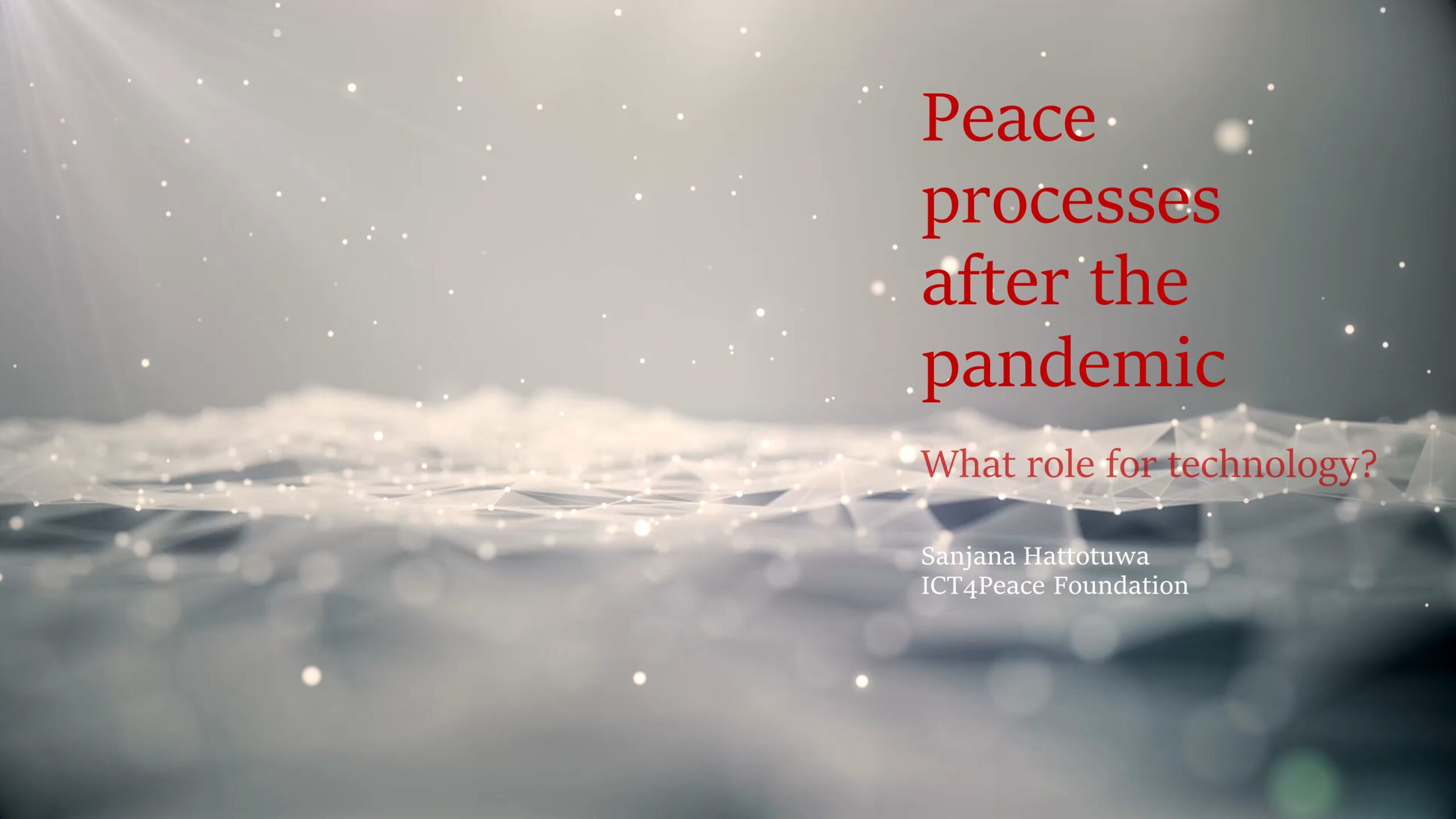Framing
In 2002, as an integral part of an official ceasefire negotiations processes in Sri Lanka after decades of war, commercial off-the-shelf-software (COTS) was adopted and adapted to support the process of mediation, anchored to a one-text process. The platform, co-architected and curated by Sanjana Hattotuwa, supported encrypted and asynchronous communications, multi-lingual, context specific and searchable repositories of textual as well as audio-visual documentation, decision support and modelling tools, multi-stakeholder position mapping, as well as input from diaspora, Track 2, Track 2 ½, and Track 3 processes. Before the advent of social media, smartphones or the web as we know and browse it today, this platform helped mediators and participants in the one-text process in Sri Lanka, Europe and elsewhere in the world exchange ideas, develop strategies, pitch maximalist positions in order to see how others would respond, shape real-world dialogues and importantly, work towards an outcome that was jointly owned.
Increasingly discussed today in the Global North, Information and Communications Technologies (ICTs) have featured in mediation processes in the Global South for close upon two decades. This bears mention in what are often discussions that appear to present or posit the use of ICTs in mediation as recent or somehow pegged to the advent and, today, ubiquity of social media. The challenges today are both similar and different to those that existed at the turn of the century. Transparency, agency and voice, central pillars of democracy, find expression, at ever increasing scale, scope, and speed, on social media. Conversely, new forms of spoiler dynamics, linked to in large part the manipulation of public discourse, also use social media as key vectors to incite violence, inflame hate and spread incendiary falsehoods. The dilemma facing mediation today is one of having to deal with vectors of information production that lie entirely beyond the remit of the Chatham House rule, rules of confidential engagement, and the sandboxing needed to incubate fragile processes and relationships. Mediators are bombarded with information they must make sense of, and this sense-making process is itself often under-valued in modern day mediation. The confusion leads to (understandable, yet misplaced) anxiety, which often finds expression in suspicion and scepticism around the role, reach and relevance of ICTs in mediation processes.
Additionally, the post-Coronavirus landscape brings with it added challenges. If physical meetings are no longer viable for the foreseeable future, a key question is how the rich, sensory experience, relational depth, non-verbal cues, physical contact and the security of verbal communication in a closed-door environment can be replicated, and to what degree, through virtually mediated environments. Aside from the obvious cyber-security concerns are also psycho-social, cognitive, socio-cultural, gendered challenges in mediation processes that will be predominantly anchored to online technologies, including social media apps, products, and platforms. Questions asked by Hattotuwa in 2018 are even more relevant in the long-shadow of Covid-19, in addition to others borne out of global and local circumstances that a few months ago seemed unimaginable. How can social media and ICTs help? What is important to focus on, and what are some dangers of today’s conflict landscape beyond the headlines? What questions should mediators ask in order to avoid the more uncommon pitfalls of incorporating ICTs in negotiations processes? Fundamentally, how will conflict transformation, anchored to mediation, change in a post-Coronavirus world where travel and meetings will be severely restricted, or no longer possible to do discreetly? More fundamentally, how can and should expectations from, models of and approaches to mediation change, post-pandemic, in a world increasingly mediated (no pun intended) through social media?
Event
The ICT4Peace Foundation led a discussion on these issues, led by Sanjana Hattotuwa, with Helena Puig Larrauri, Co-founder and Director at Build Up as discussant. The conversation was moderated by Anne-Marie Buzatu.
Presentation and video
A video of the presentation including the comments & responses by Helena Puig Larrauri is embedded below and can also be seen on YouTube here.
Download Sanjana’s presentation as a PDF here or see it online here.

